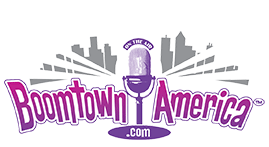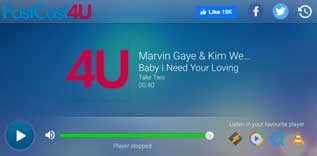 An album almost as famous for its cover as for the songs inside, Cheap Thrills, released in the summer after the Summer of Love (i.e. 1968) introduced America to perhaps the greatest white blues singer of all time – Ms. Janis Joplin.
An album almost as famous for its cover as for the songs inside, Cheap Thrills, released in the summer after the Summer of Love (i.e. 1968) introduced America to perhaps the greatest white blues singer of all time – Ms. Janis Joplin.
But Cheap Thrills was not the band’s first album, nor was Joplin part of the group’s original line-up. Big Brother & the Holding Company was formed in 1966 by San Francisco-based guitarist, Peter Albin. He started informally jamming with another guitarist, Sam Andrews. The pair decided to form a band, adding James Gurley on guitar (Albin moving over to bass) and Chuck Jones on drums. Jones was soon replaced by David Getz and BB&THC became one the most popular bands in what was the emerging “psychedelic” scene blossoming in San Francisco.
The lads thought adding a girl vocalist to their line-up might help expand their repertoire as well as increase their popularity. The band’s manager, Chet Helms, knew of a young Texas singer who considering moving to California. So, Helms invited Janis Joplin to move west and audition with the group. Unlike the movies, the band wasn’t that impressed with Joplin. And Joplin wasn’t that impressed with the band. Nevertheless, she decided to join, making her first appearance with the group at the Avalon Ballroom in June of ’66.
Gradually, singer and musicians found a way to work together. The group abandoned their improvisational free-form sound while Joplin learned how to sing with very loud musical accompanists. The group joined Jefferson Airplane, the Grateful Dead, and Quicksilver Messenger Service as part of what became known as “the San Francisco sound.”
 In September of the same year, the group found themselves stranded in Chicago when the money they got for a gig in the Windy City didn’t cover their fare to return home. So, they cut a deal with Chicago’s Mainstream Records and recorded the first four tunes in Chitown to earn enough to get back to California. They finished the album in L. A. Simply titled, Big Brother & the Holding Company, the album sold well enough in San Fran, but failed to make an impression anywhere else. The fact that Mainstream Records was a jazz label and BB&THC was their first rock act may have had something to do with it.
In September of the same year, the group found themselves stranded in Chicago when the money they got for a gig in the Windy City didn’t cover their fare to return home. So, they cut a deal with Chicago’s Mainstream Records and recorded the first four tunes in Chitown to earn enough to get back to California. They finished the album in L. A. Simply titled, Big Brother & the Holding Company, the album sold well enough in San Fran, but failed to make an impression anywhere else. The fact that Mainstream Records was a jazz label and BB&THC was their first rock act may have had something to do with it.
The band’s big break came a year later. Their appearance at the legendary Monterey Pop Festival was so strong that festival organizers asked the band to perform again on Sunday, following their initial set on Saturday afternoon. The buzz around this gig led Columbia Records to offer the group a new recording contract. However, it took some extensive negotiations to get the group out of their contract with Mainstream Records. That pushed off the recording of their second LP to the spring of 1968.
 Those sessions led to the release of Cheap Thrills in August of ’68. The initial idea was to record the band live. However, those recordings proved less than satisfactory (except for “Ball and Chain,” which did make it onto the album). Instead, producer John Simon brought the group into the studio and simulated a live album by overdubbing crowd noises on the rest of the tracks and tacking on a recording of noted rock promoter Bill Graham introducing the group to open the album.
Those sessions led to the release of Cheap Thrills in August of ’68. The initial idea was to record the band live. However, those recordings proved less than satisfactory (except for “Ball and Chain,” which did make it onto the album). Instead, producer John Simon brought the group into the studio and simulated a live album by overdubbing crowd noises on the rest of the tracks and tacking on a recording of noted rock promoter Bill Graham introducing the group to open the album.
The group had asked noted underground cartoonist, Robert Crumb to provide art for the back cover, which would include a list of the songs on the album. Crumb refused payment for his art, saying he didn’t want any of Columbia’s “filthy lucre.” For the front cover, the group wanted to use a photo of the band lying nude in a very wide bed. Columbia Records didn’t like that idea at all. They also didn’t like the name for the LP that the band proposed: “Sex, Dope & Cheap Thrills.” Columbia cut the title down to just “Cheap Thrills” and moved R. Crumb’s artwork to the front of the LP, slapping a black and white photo of Janis on the back cover,
Both proved to be shrewd moves. Cheap Thrills became a runaway bestseller, vaulting into the #1 position on Billboard’s LP chart for an impressive 8 weeks. And Crumb’s artwork really helped the album stand out in the record stores of America.
 “Piece of My Heart” became a hit on Top 40 radio, reaching #12 on the Hot 100. “Combination of the Two,” “Summertime” and “Ball and Chain” also received heavy airplay on the newly emerging string of “underground” FM rock stations springing up in markets across the U.S.
“Piece of My Heart” became a hit on Top 40 radio, reaching #12 on the Hot 100. “Combination of the Two,” “Summertime” and “Ball and Chain” also received heavy airplay on the newly emerging string of “underground” FM rock stations springing up in markets across the U.S.
The end result of all this was to make Janis Joplin a superstar who had outgrown her backing band. Shortly after the success of the album, Joplin announced she was leaving Big Brother to launch her solo career. Her star burned bright, too bright. She performed at Woodstock and recorded two more studio LPs, but the alcohol and hard drugs took their toll. She died of an overdose in October of 1970.
Cheap Thrills remains one of the best examples of rock from that era. It’s consistently mentioned in “Greatest LPs of All Time Lists” and its cover, intended to be a back cover (!), is also frequently mentioned as one of the genre’s best.
Subsequent reissues of Cheap Thrills now include additional tracks recorded during those sessions that were initially left off the album.


